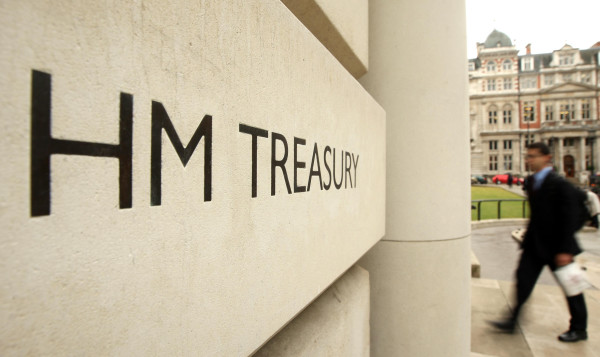

People close to the situation suggested even the Financial Conduct Authority (FCA) was caught off-guard by the government’s new rules, which revolutionised the way savers access their pension pots, and led to an exponential increase in defined benefit (DB) transfers away from so-called 'gold-plated' guaranteed retirement plans into riskier ones.
Three years on the industry sees the seeds of the problems that would follow sown in the fast-face of the change.
Pension freedoms “were announced without prior consultation with the industry and implemented in a year”, Andrew Tully, pensions technical director at Retirement Advantage said.
“Although the pensions industry work very hard to deliver on the promise of pension freedoms for day one, that left very little time to sit back and understand all of the potential dangers.”
According to Mr Tully, “customer behaviour changed very rapidly following the Budget announcement of 2014” when the planned overhaul of pensions was revealed, and the industry is “just playing catch-up with the ever-evolving guidance model, but unfortunately too few people still seek guidance or proper financial advice”.
At the time of the pension freedoms announcement, George Osborne, then chancellor, said that pensioners would have “complete freedom to drawdown as much or as little of their pension pot as they want, anytime they want”.
“No caps. No drawdown limits. Let me be clear: no one will have to buy an annuity,” he said, at the time.
But the changes only applied to defined contribution schemes, meaning since then the number of people transferring out of their DB pension transfers has been soaring, as savers seek to take advantage of sky-high transfer values and to move their nest eggs into DC in order to access them.
According to figures from the Office of National Statistics (ONS), funds transferred out of pension schemes almost tripled to a record £34.2bn in 2017.
Rory Percival, former technical specialist at the FCA, who now runs his own consultancy, told FTAdviser that “rumour has it that the pension freedom legislation was hatched in the back of a black cab”.
He said: “The FCA had next to no notice of the announcement. It is an example of the very different policy-making approaches of the government and the FCA.
“The FCA has a very strict policy-making process involving devising draft rules, undertaking a full cost benefit analysis and going through a consultation phase.
"It seems that government can devise new laws without this kind of process - obviously there is the Parliamentary process that hopefully would mitigate against the worst of poor legislation.
“The announcement was about a year before implementation and the FCA was involved with a range of activities in order to ensure the smooth implementation in such a short timescale, given systems changes with providers in particular.”
Steven Cameron, pensions director at Aegon agreed with Mr Percival’s view.
He said: “It was the Treasury who sprung the freedoms on an unsuspecting public and there’s every chance that the FCA were as surprised as everyone else.
“The FCA’s role here wasn’t to challenge the Chancellor’s policy but to consider how it could reduce any risks of consumer detriment.
“The FCA did introduce some early protections including risk warnings, and Pension Wise was created.”
But Sir Steve Webb, director at policy at Royal London, and former pensions minister, doesn’t believe the overall outcome of pension freedoms is one of significant harm.
For example, the basic idea of having the freedom to transfer out a DB pension to DC “is a very good thing” and “thousands have done so successfully and with positive outcomes”.
However, what the FCA/Treasury “did not foresee was the unfortunately high levels of unsuitable advice”.
He said: “The safeguard was meant to be the advice requirement, but if approximately 50 per cent of advice in samples is unsuitable or unclear then the safeguard hasn’t worked as well as it could have done”.
The FCA said that from a total of 88 DB transfers analysed by since October 2015, only 47 per cent were suitable, with the remaining being unsuitable or unclear.
Sir Steve added: “In my view tough enforcement action against firms who disregard the rules needs to be the priority and the FCA have clearly been behind the curve on that.
“British Steel was an extreme situation from which lessons need to be learned, but doesn’t in my view invalidate the principle of giving people freedom and choice.”
It has been alleged the steelworkers were targeted by unscrupulous advisers and unregulated introducers as they sought to transfer out of their company's pension scheme before it was forced into the lifeboat Pension Protection Fund (PPF).
Gem Durham, independent financial adviser at Obsidian, said she thinks the wider implications were "simply not considered thoroughly enough".
“I believe the Chancellor wanted to do some good by removing the requirement for people to buy an annuity at 75 – a rule that was grossly unfair, but I also believe that he wanted an immediate boost to the economy in the short term - additional money available to pensioners to spend, whilst leaving the problems for future governments to sort out.”
Alistair Cunningham, financial planning director at Wingate Financial Planning, said that despite the FCA being “blindsided by the unexpected nature” of the pension freedom rules, “they have generally released some good quality material” to address them.
maria.espadinha@ft.com



